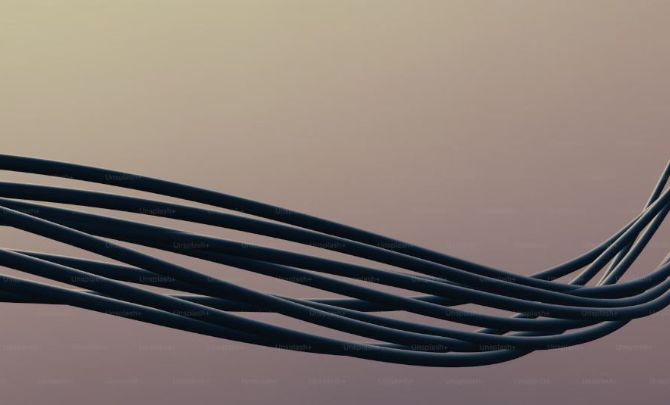HVAC linesets play a crucial role in the efficiency and performance of heating and cooling systems. These copper tubes transport refrigerant between the indoor and outdoor units, allowing the system to maintain comfortable temperatures. When https://ad.engineering/linesets/ are not maintained properly, refrigerant leaks, insulation damage, and blockages can lead to higher energy consumption and costly repairs.
Many homeowners overlook the importance of lineset maintenance, focusing instead on the main HVAC components. However, neglecting this vital system part can lead to increased utility bills and unexpected breakdowns. Proper maintenance not only extends the lifespan of the lineset but also ensures that the entire HVAC system runs efficiently.
We will explore how regular inspections, timely repairs, and preventive measures can help homeowners save money by reducing energy waste, avoiding costly repairs, and prolonging the life of their heating and cooling systems. Understanding the impact of lineset maintenance can significantly impact long-term savings.
Preventing Refrigerant Leaks and Energy Waste
One of the most common issues affecting HVAC linesets is refrigerant leaks. Over time, small cracks, corrosion, or loose connections can cause refrigerant to escape, reducing the system’s ability to cool or heat efficiently. When refrigerant levels drop, the system must work harder to achieve the desired temperature, increasing energy consumption.
This inefficiency raises electricity bills and places unnecessary strain on the compressor, which can lead to costly repairs. Regular inspections of the lineset can help detect early signs of leaks before they become significant problems. Homeowners should look for signs like ice buildup on the lines, hissing sounds, or decreased cooling efficiency.
Addressing small leaks promptly can prevent the need for major repairs or refrigerant recharges, which can be expensive. Additionally, using the correct refrigerant type and ensuring proper pressure levels can improve efficiency, reducing long-term operational costs.
Maintaining Proper Insulation to Improve Efficiency
Insulation around HVAC linesets is essential for maintaining refrigerant temperature and preventing energy loss. Over time, insulation can deteriorate due to exposure to sunlight, moisture, and pests. Damaged or missing insulation allows heat exchange between the refrigerant and the surrounding air, making the system less efficient.
During hot weather, uninsulated lines can absorb heat, causing the refrigerant to work harder to cool indoor spaces. In winter, heat loss from unprotected lines can reduce the efficiency of heating systems. Replacing worn-out insulation is a simple yet effective way to improve energy efficiency and reduce operating costs. Homeowners should regularly inspect the insulation and replace any damaged or degraded sections.
Choosing high-quality insulation materials can provide better protection against temperature fluctuations and extend the life of the lineset. Proper insulation improves system performance and helps maintain consistent indoor comfort without excessive energy use.
In addition to maintaining your HVAC lineset, ensuring proper insulation in your home can significantly enhance energy efficiency and reduce costs. Insulation acts as a barrier to heat flow, keeping your home warm in the winter and cool in the summer, which complements the efficiency of a well-maintained HVAC system. For homeowners looking to optimize their energy savings, it’s crucial to assess and upgrade insulation where necessary. To explore more about how insulation can benefit your home and contribute to overall energy efficiency, click for details. This combined approach not only extends the lifespan of your HVAC system but also maximizes your savings on energy bills.
Avoiding Blockages and Ensuring Unobstructed Refrigerant Flow
Blockages in HVAC linesets can significantly impact system efficiency and increase energy costs. Over time, debris, oil buildup, or moisture can accumulate inside the lines, restricting refrigerant flow. When refrigerant circulation is hindered, the system must work harder to compensate, resulting in higher electricity usage and potential damage to the compressor. One of the primary causes of blockages is moisture infiltration, which can lead to ice formation inside the lines. This issue can be prevented by properly sealing the system and regularly checking for signs of moisture buildup.
Additionally, installing a filter dryer can help absorb excess moisture and prevent contaminants from clogging the lineset. Homeowners should also schedule periodic maintenance to flush out any debris that may have accumulated over time. By keeping the lineset clean and free of obstructions, the system can operate more efficiently, reducing overall energy costs and minimizing the risk of expensive repairs.
Detecting and Addressing Corrosion Before It Becomes Costly
Corrosion is another factor that can compromise HVAC lineset performance and lead to unnecessary expenses. Copper tubing is generally durable, but exposure to moisture, chemicals, and outdoor elements can cause corrosion over time. Corroded linesets are more prone to leaks, reducing efficiency and increasing refrigerant costs. In extreme cases, corrosion can lead to complete system failure, requiring expensive replacements. Regularly inspecting the lineset for signs of rust or discoloration can help identify potential issues before they escalate. Protective coatings or anti-corrosion wraps can be applied to shield the tubing from environmental damage.
Additionally, ensuring proper drainage and reducing exposure to moisture can help slow down the corrosion process. If corrosion is detected early, minor repairs can be made to reinforce the tubing and prevent leaks. Addressing corrosion promptly not only extends the lifespan of the lineset but also helps homeowners avoid costly energy losses and system failures.
Proper HVAC lineset maintenance is essential for maximizing efficiency, reducing energy costs, and preventing expensive repairs. Addressing refrigerant leaks, maintaining insulation, preventing blockages, and monitoring for corrosion all contribute to a well-functioning system. Preventive maintenance not only extends the lifespan of the HVAC system but also reduces the need for costly replacements. Regular inspections and timely repairs help homeowners avoid sudden breakdowns and maintain consistent energy efficiency. Investing in proper upkeep may require effort, but the long-term savings outweigh the costs. By prioritizing HVAC lineset maintenance, homeowners can enjoy lower utility bills, fewer repair expenses, and a more reliable heating and cooling system throughout the year.
